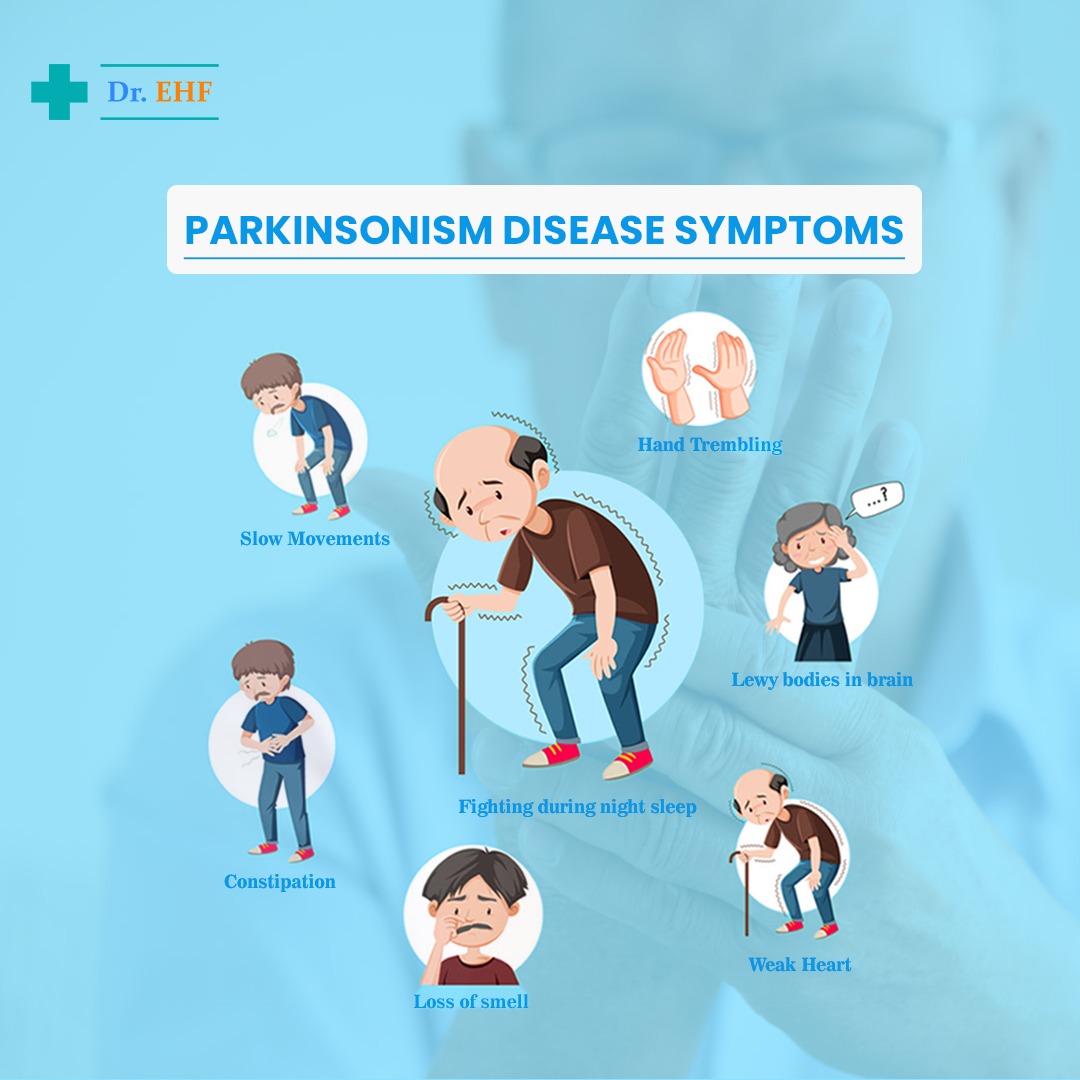Parkinson's Disease (PD) is a complicated disease & not restricted to only nerve problems alone. What we see is just the tip of the iceberg as many more complications lie hidden underneath. It is a disease that slowly affects the body over many years and shows commonly by three body signs such as stiffness, slowness of movements & trembling of hands when the person is at rest that is when he is sitting idly.
Although PD affects many areas of the nervous system, including parts of the brain, it is now realized that PD extends well beyond the nervous system. Lewy Bodies (LB) were discovered in nerves as early as 1928 as the main cause of PD, but that it affects many areas of the brain was recently discovered by scientists. Later James Parkinson discovered that the disease started in the upper spinal cord.
CHANGING CLINICAL FACE OF PARKINSON'S DISEASE:
With the discovery of latest techniques, it is now possible to detect PD at an early stage. Rapid Eye Movement (REM) sleep behavioral disorder (RBD) can also lead to dangerous movements while asleep at night, injuring caregivers. In a study nearly 40 percent of the patients had RBD before developing into full grown PD & could be an early indication of RBD in such patients.
Postmortem examination of brain cells (neurons) of such patients does show presence of Lewy Bodies.
LOSS OF SENSE OF SMELL:
Many patients complained of loss of smell months before they developed PD, but being insignificant was not given due importance.
LOSS OF NERVE SUPPLY IN HEART:
PD is known to cause disruption of certain nerve supply to the heart which could lead to tiredness and excess day time sleepiness as an early warning sign of PD.
CONSTIPATION:
Is a very troublesome and common symptom found in PD patients. This could be due to less activity or dehydration in such patients.
Surprisingly Lewy Bodies were found in intestinal walls of most patients of PD. It is also believed that PD may also affect lower intestines, urinary bladder & even cause disturbances in the food pipe. (oesophagus)
Loss of memory (Dementia) with Lewy Bodies (DLB) is also a cause of concern. Infact, reports suggest that DLB & PD could be the same disease, but with different points of origin.
CHALLENGES OF REDEFINING WHO EXACTLY IS A PATIENT OF PD AND WHAT ARE ITS FEATURES
The concept of PD & its treatment might soon change, and it is only recently that Lewy Bodies and PD were correlated during postmortem. Another issue is that Parkinson has been closely related to neurological problems because of its signs like tremors at rest, stiffness of body and slow body movements. Hence broadly speaking looking at the complex signs and symptoms of PD when we attend to such a patient, we should not only look at neurological symptoms, but a wide range of disease indications in a broader way. We must treat all symptoms of the disease as a whole so that we can make lives better for our patients with PD. So next time think PD if say a 78-year-old man complains of a 15-year history of chronic constipation who at age 68 experienced a near complete loss of his sense of smell. Also strangely he has recently developed an unusual sleep problem in which he suddenly shows fighting - combative behavior during the night that has resulted in injury to his spouse on two separate incidents; typically he will be referred to a sleep disorders clinic and not to a geriatrician - who specializes in elderly care or a neurologist
Compiled from various international research journals available at google scholar by D. Mukherjee having 38 years of pharmaceutical (Cardiac, Diabetic, Neurology, Pain & Inflammation products) experience with a Swiss Multinational Company NOVARTIS and edited by : Dr Sandeep Ahlawat , MBBS
